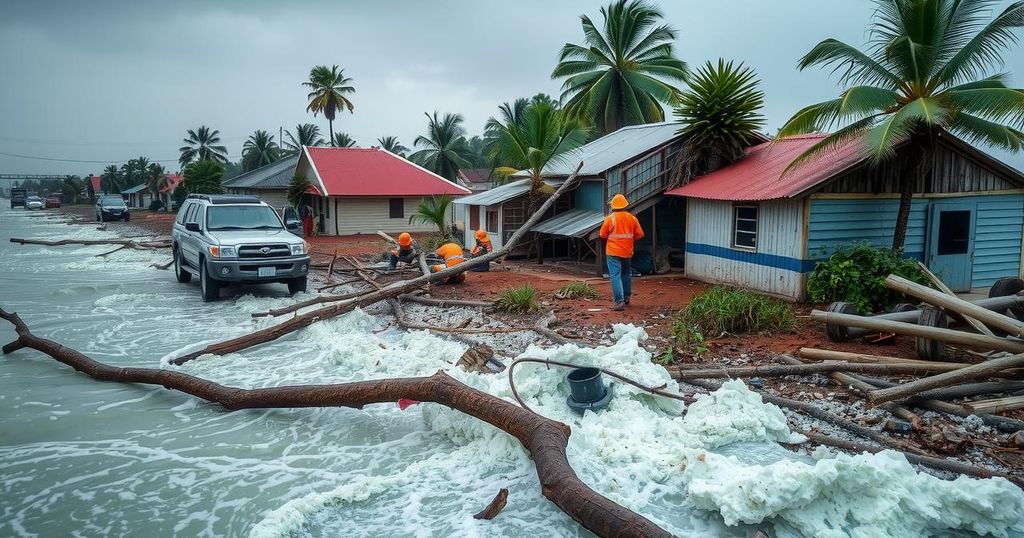Death Toll from Cyclone Chido in Mozambique Reaches 120
Cyclone Chido has led to a rise in the death toll in Mozambique from 94 to 120, with nearly 900 injuries reported and substantial damage to homes and infrastructure. The cyclone, classified as category 4, brought extreme winds and rainfall, affecting several countries in southern Africa, including Mayotte and Malawi.
The death toll from Cyclone Chido in Mozambique has tragically increased from 94 to 120, as reported by the National Institute for Disaster Risk Management and Reduction (INGD). The cyclone, classified as category 4, made landfall on December 15, unleashing powerful winds reaching 260 kilometers per hour (160 mph) and significant rainfall totaling 250mm within the first 24 hours. The disastrous effects of the storm have resulted in nearly 900 injuries and widespread homelessness, with numerous houses, schools, and health facilities severely damaged across the affected regions.
The cyclone initially struck the French territory of Mayotte on December 14, where wind speeds surpassed 220 kilometers per hour (136 mph), inflicting significant destruction. As of now, the confirmed death count in Mayotte stands at 35, although various organizations express concerns that the number could be considerably higher. The devastation extended beyond Mozambique, impacting countries including Madagascar, Comoros, Zimbabwe, and Malawi, where the Department of Disaster Management Affairs (DoDMA) reports that Cyclone Chido led to 13 fatalities and injuries for 29 individuals, alongside damage to numerous homes and infrastructure.
Cyclone Chido represents one of the latest large-scale natural disasters to impact southern Africa, particularly Mozambique, which is no stranger to severe climate events. Understanding the cyclone’s trajectory and the context of its devastation requires awareness of the geographical vulnerabilities of these regions. The cyclone’s strengthening prior to landfall illustrates the increasing potency and frequency of tropical storms, which have been linked to changing climate patterns. Emergency response and disaster recovery resources are crucial in minimizing the adverse effects on affected populations who often struggle with limited infrastructure.
In conclusion, Cyclone Chido has caused significant human suffering and infrastructure damage in Mozambique and other parts of southern Africa. The rising death toll, now at 120 in Mozambique, alongside nearly 900 injuries and widespread dislocation, emphasizes the urgent need for effective disaster management strategies. Relief efforts must focus on addressing the extensive damage to homes, educational institutions, and healthcare facilities as communities work towards recovery from this catastrophic event.
Original Source: www.aa.com.tr




Post Comment